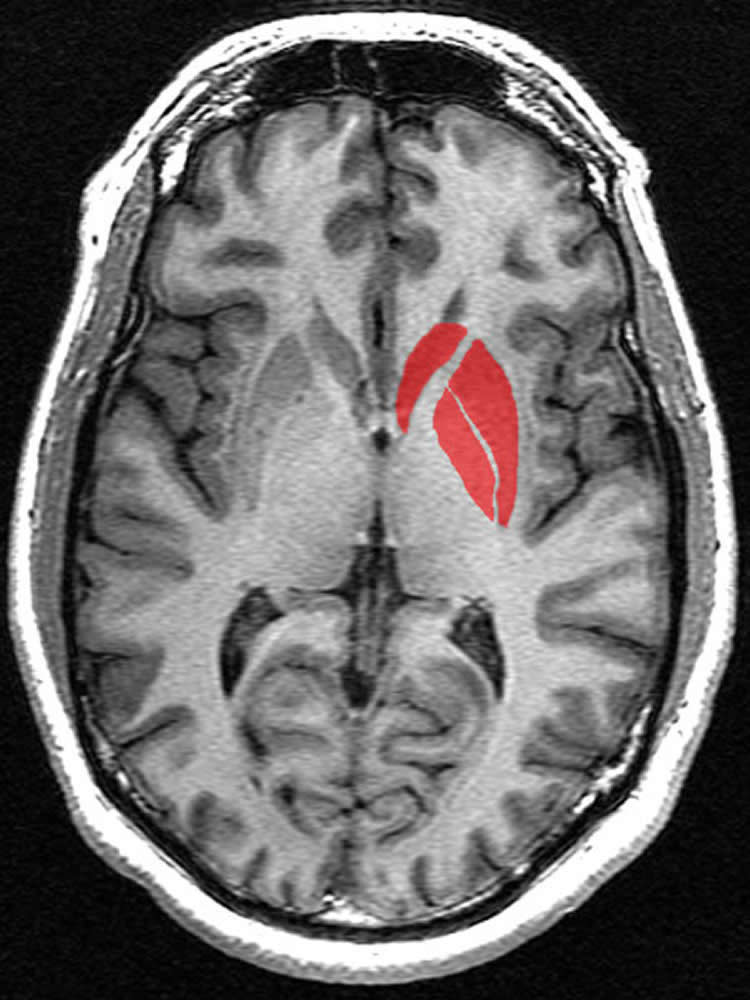In a recent study, researchers found evidence of a compromised dopamine system in heavy users of marijuana. Lower dopamine release was found in the striatum – a region of the brain that is involved in working memory, impulsive behavior, and attention. Previous studies have shown that addiction to other drugs of abuse, such as cocaine and heroin, have similar effects on dopamine release, but such evidence for cannabis was missing until now.
“In light of the more widespread acceptance and use of marijuana, especially by young people, we believe it is important to look more closely at the potentially addictive effects of cannabis on key regions of the brain,” said Anissa Abi-Dargham, MD, professor of psychiatry (in radiology) at Columbia University Medical Center (CUMC) and a lead author of the paper.
The study included 11 adults between the ages of 21 and 40 who were severely dependent on cannabis and 12 matched healthy controls. On average, the cannabis group started using at age 16, became dependent on cannabis by age 20, and have been dependent for the past 7 years. In the month prior to the study, nearly all users in this study smoked marijuana daily.

Using positron emission tomography (PET) to track a radiolabelled molecule that binds to dopamine receptors in the brain, the scientists measured dopamine release in the striatum and its subregions, as well as in several brain regions outside the striatum, including the thalamus, midbrain, and globus pallidus. The cannabis users in this study stayed in the hospital for a week of abstinence to ensure that the PET scans were not measuring the acute effects of the drug. Participants were scanned before and after being given oral amphetamine to elicit dopamine release. The percent change in the binding of the radiotracer was taken as an indicator of capacity for dopamine release.
Compared with the controls, the cannabis users had significantly lower dopamine release in the striatum, including subregions involved in associative and sensorimotor learning, and in the globus pallidus.
The investigators also explored the relationship between dopamine release in a key area of the striatum and cognitive performance on learning and working memory tasks. Although there was no difference between groups in task performance, in all participants lower dopamine release was associated with worse performance on both tasks.
“We don’t know whether decreased dopamine was a preexisting condition or the result of heavy cannabis use,” said Dr. Abi-Dargham. “But the bottom line is that long-term, heavy cannabis use may impair the dopaminergic system, which could have a variety of negative effects on learning and behavior.”
Jeffrey Lieberman, MD, Chair of Psychiatry at CUMC and past president of the American Psychiatric Association, noted that “these findings add to the growing body of research demonstrating the potentially adverse effects of cannabis, particularly in youth, at the same time that government policies and laws are increasing access and use.”
“Deficits in striatal dopamine release in cannabis dependence,” was published online on March 22, 2016, in Molecular Psychiatry. Authors are Elsmarieke van de Giessen, MD, PhD, Jodi J. Weinstein, MD, Clifford M. Cassidy, PhD, Margaret Haney, PhD, Zhengchao Dong, PhD, Rassil Ghazzaoui, MA, Najate Ojeil, MA, Lawrence S. Kegeles, MD, PhD, Xiaoyan Xu, PhD, Nehal P. Vadhan, PhD, Nora D. Volkow, MD, Mark Slifstein, PhD, and Anissa Abi-Dargham, MD. Affiliations are: Department of Psychiatry, Columbia University Medical Center and New York State Psychiatric Institute, New York NY (EvdG, JJW, CMC, MH, ZD, RG, NO, LSK, XX, NPV, MS, AA); Department of Nuclear Medicine, Academic Medical Center, Amsterdam, The Netherlands (EvdG); Department of Psychiatry, Stony Brook University School of Medicine, New York, NY (NPV); National Institute on Alcohol Abuse and Alcoholism, Bethesda, MD, (NV).
Dr. Haney has received partial salary support for investigator-initiated studies from Insys Therapeutics Inc and Lifeloc Technologies and has served as a consultant to Aelis Farma and Health Advances LLC. Dr. Kegeles has received research support from Amgen. Dr. Slifstein has received research support from Forest Laboratories, PierreFabre, CHDI, and Otsuka and has provided consultation for Amgen. Dr. Abi-Dargham has received research support from Takeda and Forest Pharmaceuticals and has served on advisory boards for Roche, Forum, and Otsuka. The remaining authors declare no conflict of interests.
Funding: Funding for this study was provided by grant R01 DA022455-01A1 from the National Institute on Drug Abuse to Dr. Abi-Dargham. Dr. van de Giessen was supported by a Rubicon grant from the Netherlands Organisation for Scientific Research (825.12.009).
Source: Rachel Yarmolinsky – Columbia University Medical Center
Image Credit: The image is in the public domain.
Original Research: Abstract for “Deficits in striatal dopamine release in cannabis dependence” by E van de Giessen, J J Weinstein, C M Cassidy, M Haney, Z Dong, R Ghazzaoui, N Ojeil, L S Kegeles, X Xu, N P Vadhan, N D Volkow, M Slifstein and A Abi-Dargham in Molecular Psychiatry. Published online March 22 2016 doi:10.1038/mp.2016.21
Abstract
Deficits in striatal dopamine release in cannabis dependence
Most drugs of abuse lead to a general blunting of dopamine release in the chronic phase of dependence, which contributes to poor outcome. To test whether cannabis dependence is associated with a similar dopaminergic deficit, we examined striatal and extrastriatal dopamine release in severely cannabis-dependent participants (CD), free of any comorbid conditions, including nicotine use. Eleven CD and 12 healthy controls (HC) completed two positron emission tomography scans with [11C]-(+)-PHNO, before and after oral administration of d-amphetamine. CD stayed inpatient for 5–7 days prior to the scans to standardize abstinence. Magnetic resonance spectroscopy (MRS) measures of glutamate in the striatum and hippocampus were obtained in the same subjects. Percent change in [11C]-(+)-PHNO-binding potential (ΔBPND) was compared between groups and correlations with MRS glutamate, subclinical psychopathological and neurocognitive parameters were examined. CD had significantly lower ΔBPND in the striatum (P=0.002, effect size (ES)=1.48), including the associative striatum (P=0.003, ES=1.39), sensorimotor striatum (P=0.003, ES=1.41) and the pallidus (P=0.012, ES=1.16). Lower dopamine release in the associative striatum correlated with inattention and negative symptoms in CD, and with poorer working memory and probabilistic category learning performance in both CD and HC. No relationships to MRS glutamate and amphetamine-induced subclinical positive symptoms were detected. In conclusion, this study provides evidence that severe cannabis dependence—without the confounds of any comorbidity—is associated with a deficit in striatal dopamine release. This deficit extends to other extrastriatal areas and predicts subclinical psychopathology.
“Deficits in striatal dopamine release in cannabis dependence” by E van de Giessen, J J Weinstein, C M Cassidy, M Haney, Z Dong, R Ghazzaoui, N Ojeil, L S Kegeles, X Xu, N P Vadhan, N D Volkow, M Slifstein and A Abi-Dargham in Molecular Psychiatry. Published online March 22 2016 doi:10.1038/mp.2016.21







